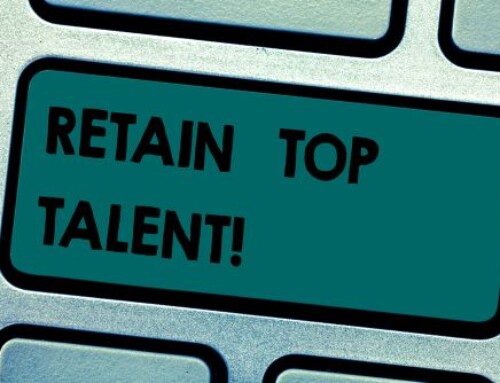Every person attending a meeting is unique. With a plethora of different personalities, backgrounds, and motivations in attendance, aiming to reach every attendee can be a daunting task. However, it is possible to identify a handful of general personas you’ll encounter at your meeting. We’ve put together a list of seven types of meeting attendees, and included strategies for reaching people in each category.
The Student
You might also call this one ‘the obsessive note-taker.’ People in this category are looking to learn. They will soak up every ounce of knowledge they can, eager to grow.
The best way to reach these human sponges is to provide a lot of quality information. However, pacing is important. These attendees will notice if you’re moving too quickly. They want to keep track of what you’re saying, so aim for a pace that allows note-taking. Also, this category of people will love handouts.
The Networker
Networkers are looking to, well, network. They want to meet new people and make connections to other professionals – even within the same organization.
Since networkers want connections, you can help them by putting them in touch with others. Before your meeting even begins you can create a private social media group or an event page on Facebook where attendees can see who else will be coming. You can also engage them by providing your speakers’ business cards or other contact details.
The Creatives
These are the people looking for a creative spark. They attend a meeting hoping to be inspired.
It can be hard to reach these people, since different individuals find inspiration in different places. However, creatives often benefit from other creatives. An innovative speaker, for example, will typically trigger the creative spark these individuals seek.
The Ladder Climber
Whether it’s someone looking to switch companies or someone hoping to move up, these people attend a meeting for employment prospects. Sometimes they are in the initial stages of the hunt, other times they are looking to find specific potential promotion opportunities.
The best way to aid ladder climbers is to give them opportunities to connect with potential bosses in other departments or higher up the management chain. Like networkers, job-seekers benefit from the chance to rub shoulders with others and see what opportunities may be available to them.
The Writer
Writers show up to meetings hoping for content fodder. Whether for an internal newsletter or blog, you can expect these folks to pay close attention to your speakers’ words. They’ll take lots of notes, like the student-types, but for a more specific purpose.
Speaking to writers is pretty straightforward. Any speaker should value clarity and conciseness, but this is especially helpful when writers are present. Summary statements are also beneficial, since they can help writers structure their piece.
The Reporter
The reporter is the person sent to a meeting in order to report back to their team. Their aim is to identify the main points and best takeaways, then relay this information to those not in attendance.
Reporters, like writers, benefit from clear and concise speakers. Handouts will also be particularly helpful to them.
The Reluctant Attendee
Not all meeting attendees are thrilled to be there, unfortunately. Some guests show up dutifully, skeptical of the meeting’s benefit to them. Some may come in expecting to be disappointed, or critical of the meeting’s purpose.
Reluctant attendees need high-quality material. They need to learn, and to be impressed with the information provided. What’s more, they’ll want the meeting to be efficient and well-managed. However, if you clearly convey the meeting’s vision and purpose before your event takes place you can preemptively eliminate some potential reluctance.
Your meeting will be full of all kinds of people, each with their own reasons for attending. Some may not fall into any of these seven categories, and some may fall into more than one. However, knowing possible attendee personas, and how to reach each one, will make your meeting much more effective, helpful, and efficient.
For more information about planning a meeting, contact Gavel International.
This article was last updated on November 28, 2022
- Why In-Person Events and Incentive Travel Are Essential Due to the Rise of Nomadic Culture - March 10, 2025
- 8 Indicators of a Problematic Meeting Culture – and How to Solve Them - February 3, 2025
- Benefits of Micro-Offsite Events and Tips for Planning Them - January 27, 2025






